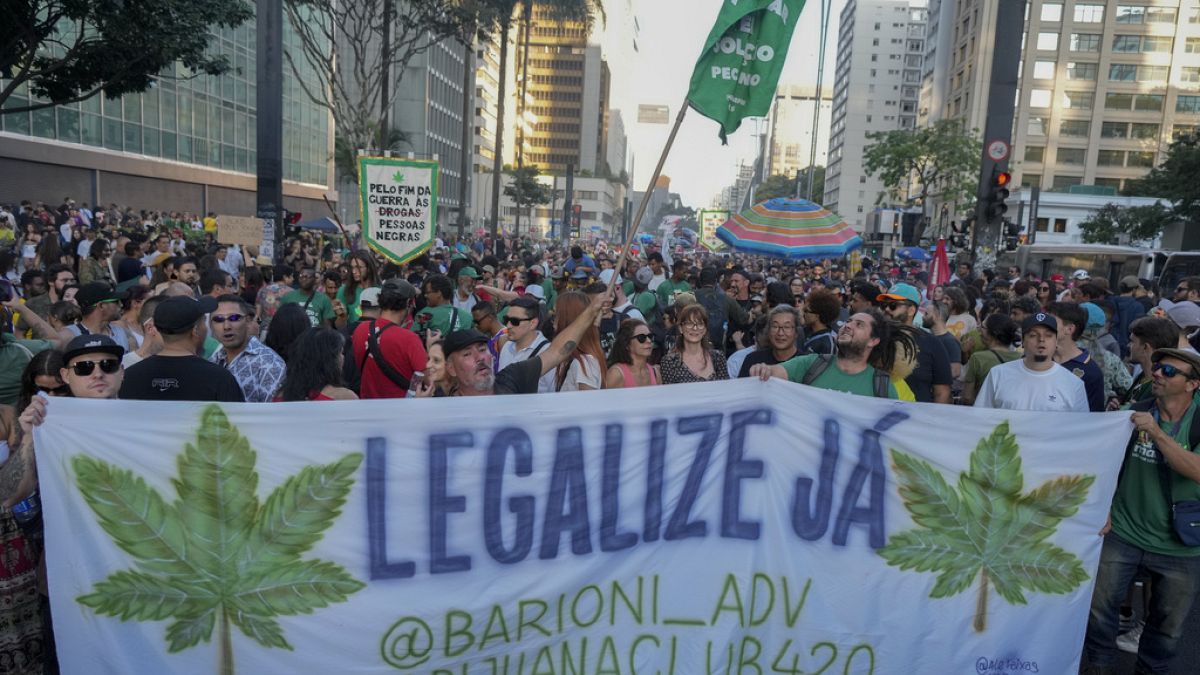On Sunday, thousands of activists gathered in Sao Paulo to support the legalization of marijuana in Brazil. The protesters decried what they perceived as violence and abuse of power by security forces. The march featured placards, plants, banners, and cigarettes, all under the slogan “Rolling a future without war.” This demonstration comes on the heels of the Brazilian Congress’s approval of a Constitutional reform on drugs, which seeks to punish drug possession regardless of quantity or substance.
The activists participating in the march in Sao Paulo were passionate about their cause, with many holding signs advocating for the legalization of marijuana. The protest highlighted a growing public sentiment in Brazil in favor of cannabis reform, as more people become aware of the benefits and the injustices associated with its criminalization. The activists’ call for a future without war on drugs reflects a desire for alternative approaches to drug policy that prioritize harm reduction and social justice.
The demonstration in Sao Paulo also serves as a platform for activists to speak out against what they see as a pattern of violence and abuse of power by security forces in Brazil. By coming together in solidarity, the protesters aim to raise awareness about the need for accountability and reform within law enforcement agencies. The legalization of marijuana is not just about individual freedoms but also about addressing systemic inequalities and human rights violations within the criminal justice system.
The timing of the protest march in Sao Paulo is significant, as it coincides with recent developments in drug policy in Brazil. The approval of a Constitutional reform on drugs by the Brazilian Congress represents a step towards a more punitive approach to drug possession, regardless of quantity or substance. The activists see this as a regressive move that will only exacerbate the social harms and injustices already associated with drug criminalization.
The call for the legalization of marijuana in Brazil is not just about recreational use but also about the potential benefits for medical and therapeutic purposes. Advocates for cannabis reform argue that legalizing marijuana could not only generate revenue for the government but also provide access to medical cannabis for patients in need. By framing the issue as a matter of public health and social equity, activists hope to garner broader support for their cause and ultimately change the conversation around drug policy in Brazil.
In conclusion, the march in Sao Paulo in support of the legalization of marijuana in Brazil reflects a broader movement towards drug policy reform and social justice. The activists’ passionate advocacy for a future without war on drugs underscores the need for more humane and evidence-based approaches to drug regulation. By raising awareness about the injustices associated with drug criminalization and calling for accountability in law enforcement, the protesters are pushing for change in Brazil’s drug policy landscape.






























